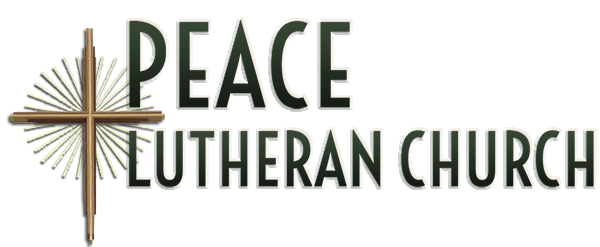Matthew 13:1-9, 18-23
Before I say anything else, I just have to say this: Since I’ve been here with you, we’ve experienced death after death of long-time significant members of this congregation. We’ve bid farewell and Godspeed to other long-time members, most recently Peter and Emmy Johnson. All those losses were and are difficult for us. They grieve our hearts, and the losses diminish us as a congregation. And now on top of the death of Rich Hartman, the sudden, unexpected death of Lorraine Maylum, like the proverbial straw that broke the horses’ back, has sent shockwaves through the congregation, causing a cloud of sorrow to descend upon at least those of you with whom I had contact this past week.
It is as though we’ve reached a crisis of confidence, a stark realization of our mortality and limits. Truly, we are all getting older, and yes, many are not as able to do things at the level you once could. But is that all there is to the story, to our story of being the church? No, it is not.
Think we have troubles? Well, we do, but that is not the story. The story is Jesus. Matthew places the parable of the sower, along with others, in the midst of a narrative of change and crisis. The section in which the parable of the sower is found is preceded by the rejection of Jesus by the Pharisees and by his own family. Immediately following the parables discourse, Jesus is rejected with hostility in his own home town. [Eugene Boring (Matthew, New Interpreters’ Bible) p. 300]
The main character in the parable is the sower. The sower scatters his seed carelessly, recklessly, seemingly wasting much of the seed on ground that holds little promise for a fruitful harvest. No real life farmer would ever waste expensive seed that way. Yet the gospels show us how Jesus squanders his time with tax collectors and sinners, with lepers, the demon-possessed, outcasts of all kinds, and of course with the motley, mostly uncomprehending band of this followers. In fact, his life and work and promises are in themselves the real parable. He is the lavish sower of the Word, sowing the world with grace and mercy.
Naturally, given the allegorical interpretation that follows the parable, and the usual human folly, we want to make everything be about us and our powers and abilities, and weight our souls down spending time pointing out the evidence of several kinds of soil in our lives and in our congregation on any given day. And that’s the source of our discouragement and worry about things. And even though we sing the song, “Lord, let our hearts be good soil”, I have to say that Jesus does not use the parable to exhort hearers to “be good soil,” as though we could make that happen. The hope in the parable is not about what we might be or do, but is rather that the sower keeps sowing generously, extravagantly, even in the least promising places. Jesus’ investment in his disciples shows that he simply will not give up on them, in spite of their many failings. We trust that he will not give up on us either, but will keep working on whatever is hardened, rocky, or thorny within and among us. We trust in his promise to be with us to the end of the age. It is truly what the Bible is all about. [Cf Elizabeth Johnson @ WorkingPreacher.org for the preceding two paragraphs] The parable of the sower is not about us, but about God and God’s promises to us. It is about the Living Word of God, Jesus Christ.
Eugene Peterson, the man who paraphrased the Bible in striking language, known as the Message, wrote this about the place of the Scriptures in our lives:
Read is the first thing, just reading the Bible. As we read we enter a new world of words and find ourselves in on a conversation in which god has the first and last words. We soon realize that we are included in the conversation. We didn’t expect this. But this is precisely generation after generation of Bible readers do find: The Bible is not only written about us but to us. In these pages we become insiders to a conversation in which God uses words to form and bless us, to teach and guide us, to forgive and save us. [Intro to Zondervan Message/NIV Bible]
I hear that as right on the mark for where we may be, in the ever more clearly dawning realization of our limits and what I term our congregational fragility at this point in its history. In the parable, we hear the One who speaks and lives in God’s way, Jesus our Savior and Lord. He, not us, is the totally faithful one.
Jesus who sows the Universe with Good News confidently expects that God will bring forth an abundant crop. The crop is not a church that looks triumphant in the world, but is a church of an abundant harvest of trust and hope in God, no matter what its size or demographic. In spite of our sorrows and struggles, in the face of suffering and decline, such a church expects God to be kind and gracious and merciful, always. Such a church looks to God, not itself.
Isaiah the prophet announced such confidence long before Jesus, but the faithfulness of Jesus fulfills his words:
My word that goes out from my mouth;
shall not return to me empty,
but it shall accomplish that which I purpose,
and succeed in the thing for which I sent it. [Isaiah 55:11]
Jesus the faithful one became those words, the Living Word, never wavering in his confidence the merciful, gracious, renewing work of God.
Brothers and sisters, let us look not to ourselves for the answers, but to Christ crucified and risen, whose faithfulness is the hundredfold blessing of God. Living in Christ’s faithfulness the whole universe becomes music–the trees clapping their hands and the mountains and hills bursting into song!
No wonder Jesus said: Let anyone with ears listen! Amen.


